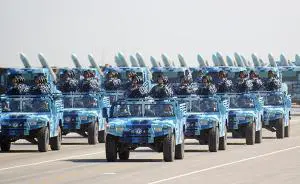Zhang Shuxia, an obstetrician in northwest China's Shaanxi Province, was sentenced to death with two years' reprieve on Tuesday for trafficking seven babies.
Zhang, a doctor with Fuping County Maternal and Child Health Care Hospital, was found guilty of selling seven babies, one of whom later died, to human traffickers after persuading their parents to give up their "sick" newborns, according to the Weinan Intermediate People's Court.
Although the court found Zhang not guilty of causing the baby's death after it was sold, it still held her responsible for leaving the baby unattended.
The infant died after a trafficker surnamed Pan abandoned it in a garbage ditch, according to the court.
Zhang was also deprived of political rights for life and all of her property has been confiscated.
The court said though Zhang confessed her guilt during the interrogation, she was given a severe punishment on the grounds that she had violated both her professional and social ethics and caused an "extremely bad social impact."
Lai Guofeng, father of one of the abducted babies, said on Tuesday that he was satisfied with the sentence, saying "I believe in the justice of the law."
Lai said he had also filed a lawsuit against Fuping County Maternal and Child Health Care Hospital.
Zhang's involvement in baby trafficking was exposed in July, when a mother, surnamed Dong, came to suspect that her newborn had been abducted. She reported the incident to police.
Zhang persuaded Dong and her husband, Lai Guofeng, to give up their boy after falsely claiming the child had a congenital disease, according to Weinan Intermediate People's Court. The baby was found in good health in neighboring Henan Province on Aug. 5.
Two twin baby girls were also rescued from neighboring Shanxi Province and Shandong Province in east China on Aug. 10 after their mother, surnamed Wang, contacted police in Fuping.
Nine suspects, including Zhang, were detained by police in August.
Following the scandal, a deputy county governor, director and a deputy director of the county health bureau, and several hospital officials were dismissed from their posts.
Four former officials of the hospital, including its former president Wang Li, former deputy president Yao Junmin, former director of the department of obstetrics Gao Wenping and former administrator of the delivery rooms Si Xin, stood trial on Jan. 6.
The court will announce its verdict on the four at a later date.
In less than a month after the exposure of the scandal, police received reports of 55 similar infant trafficking cases, including 26 in which Zhang was allegedly involved. Police investigations found evidence in six of those 26 cases.
Shi Ying, vice-president of the Shaanxi Academy of Social Sciences, said the poverty of rural families and a poor medical care insurance system worsened the strain that comes with parenting congenitally handicapped babies, exacerbating child trafficking, which is already rampant in China.
"Some poor families in the countryside are afraid of having a handicapped child. They are afraid of spending money, so most of them choose to give up the baby," Shi said. "This explains why Zhang could successfully persuade parents to give up their babies."
"To some families, the birth of a handicapped baby is the start of a nightmare," said one of Zhang's victims.
Some 800,000 to 1.2 million babies are born with congenital defects in China every year. Most abandoned infants have such problems.
"This buyer's market generates huge demand and should not be overlooked in curbing human trafficking," said Zhang Zhiwei, a campaigner against child trafficking with the China University of Political Science and Law.
China is aware of the problem and is working to establish a state care system to provide support for handicapped infants' treatment, said Ye Chengfang, an academic from the Beijing Youth Politics College.
 简体中文
简体中文

